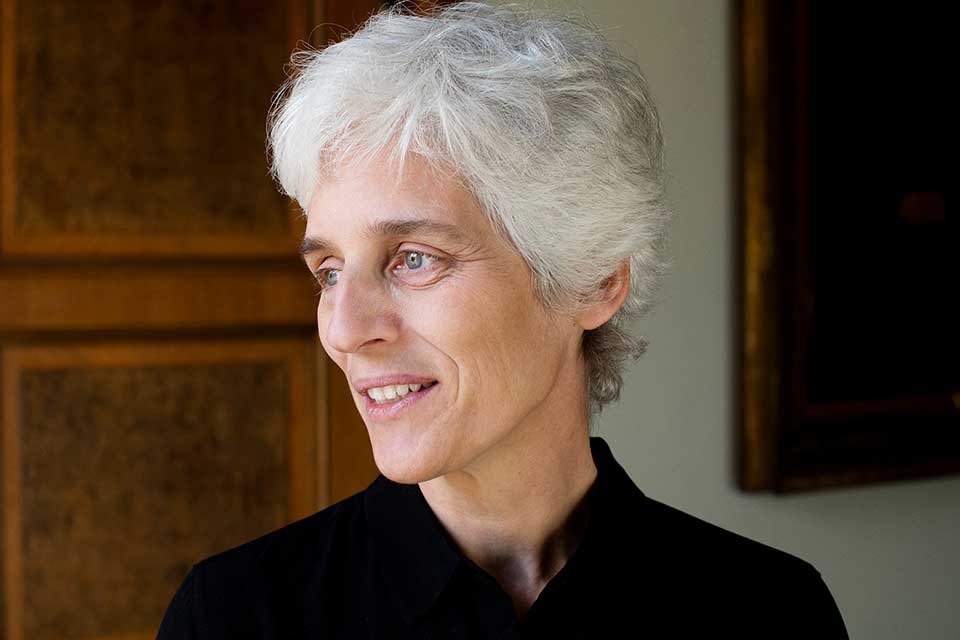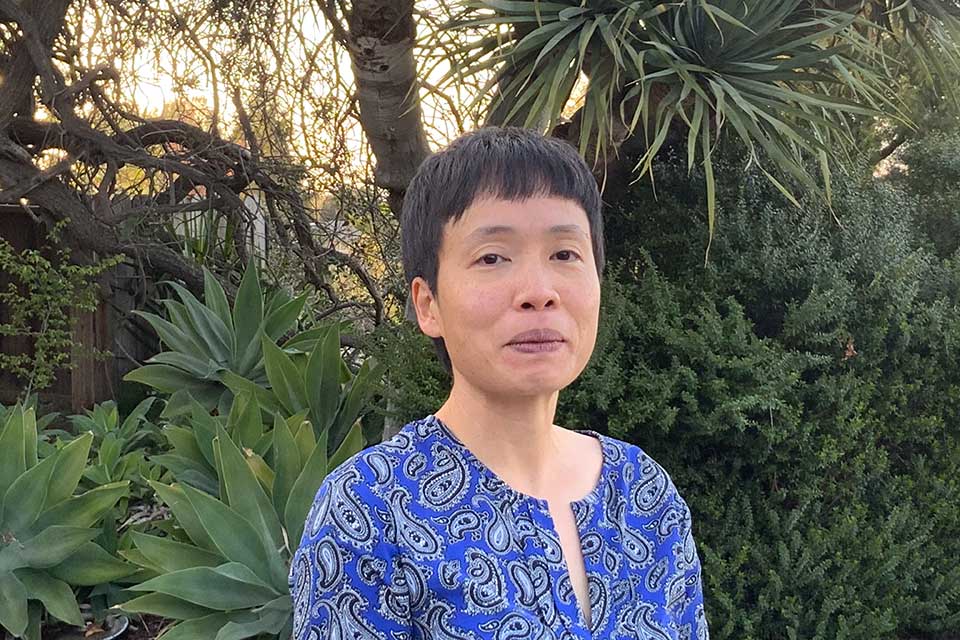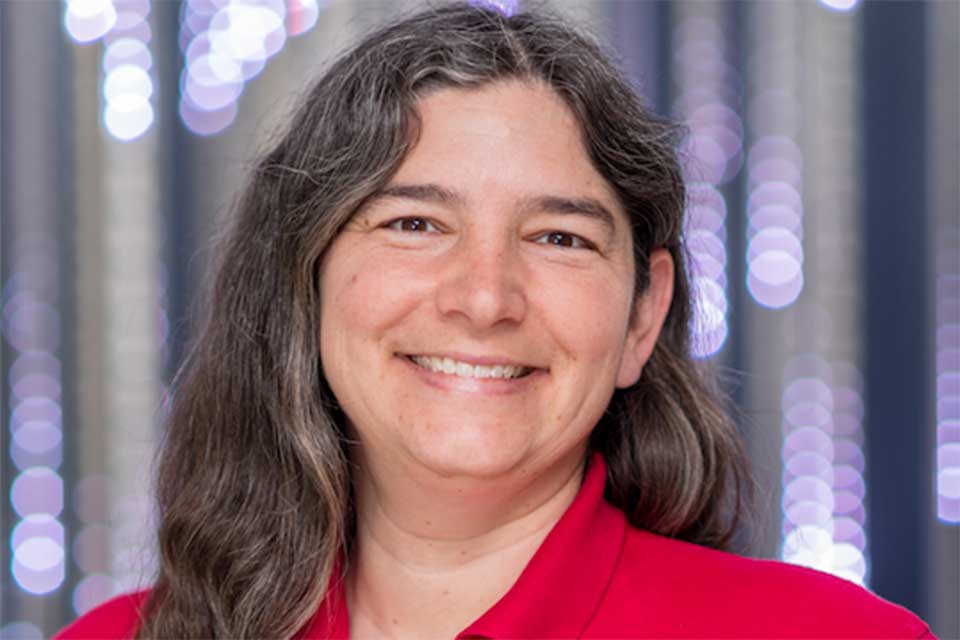Brandeis Alumni, Family and Friends
Channeling Creativity in Mathematics: Ulrike Tillmann ’85
This Women’s History Month, the Brandeis Alumni Association invited perspectives from several alumnae who are inspiring the next generation of scientists.

Ulrike Tillmann ’85 is a professor of mathematics at Oxford University and a fellow of the Royal Society. In fall 2021 she is to become director of the Isaac Newton Institute and president of the London Mathematical Society.
After finishing her early education in Germany, Tillmann attended Brandeis as a Wien International Scholar, then studied for her PhD at Stanford. At Oxford, she is co-director of the Centre for Topological Data Analysis and a fellow of Merton College.
She was awarded the Whitehead Prize by the London Mathematical Society in 2004 and the Bessel Preis by the Humboldt Society in 2008. Elected a fellow of the Royal Society in 2008, she was an inaugural fellow of the American Mathematical Society in 2012, and became a member of the Leopoldina in 2017.
She was invited by the Brandeis Alumni Association to reflect on her career in STEM and on the part her Brandeis experience played in shaping her professional path.
My field of research is algebraic topology, a field that aims at using algebra to analyze geometric objects. My research on spaces of Riemann surfaces was motivated by questions in quantum field theory while some of my more recent research is addressing problems in data science.
To find a new connection between entirely different mathematical concepts is a very creative thing. It is very satisfying to gain deeper understanding, especially if there is the prospect that this might explain something beyond mathematics proper. But for me, being an academic has always also been about the scientific discourse with colleagues and with students. Working with graduate students, in particular, has always been an important part of my work.
It was clear quite early that it was easy for me to do mathematics and I received plenty of positive feedback. So I liked mathematics as a school subject but I cannot really say that I was interested in it; in school, I might have said my interests were drawn to philosophy or literature. When I got to Brandeis this did not change significantly. Although I was ambitious with the courses I took, only a third of my classes or less were actually in mathematics.
It was during my second year at Stanford when I finally made the decision between computer science (artificial intelligence) and mathematics: I was drawn into the subject by the challenges that it posed. To solve a research problem or to find a new way of understanding and explaining deep concepts was very satisfying.
Brandeis has a very good mathematics department and some of its most well-known members were my teachers. It also has an excellent graduate program that was open to undergraduates. I think that was very important. There were a handful of us who regularly took graduate classes and special reading courses one-to-one with a member of the faculty. All this helped tremendously when I went to graduate school. But Brandeis also shaped my personal life in a much deeper way than I could have imagined then.
My freshman advisor was Professor Teruhisa Matsusaka. My oral English really was not very good at the time, and according to the other students, each autumn Professor Matsusaka returned from Japan with his English not at its best either. So between the two of us, communication was somewhat lacking.
But right from the beginning, he was very supportive, pushing me to take more advanced classes while also understanding that also good students can sometimes have difficulties. In one such instance, he encouraged me to see his star graduate student, and I did. The grad student found my question not so straightforward either and got nervous. To realize that even stars might hesitate—that, too, was an important lesson! At the end of my first term, Professor Matsusaka gave me his book on multivariate calculus which has many of his personal annotations and from which he had taught for many years. It remains one of my most treasured books.









